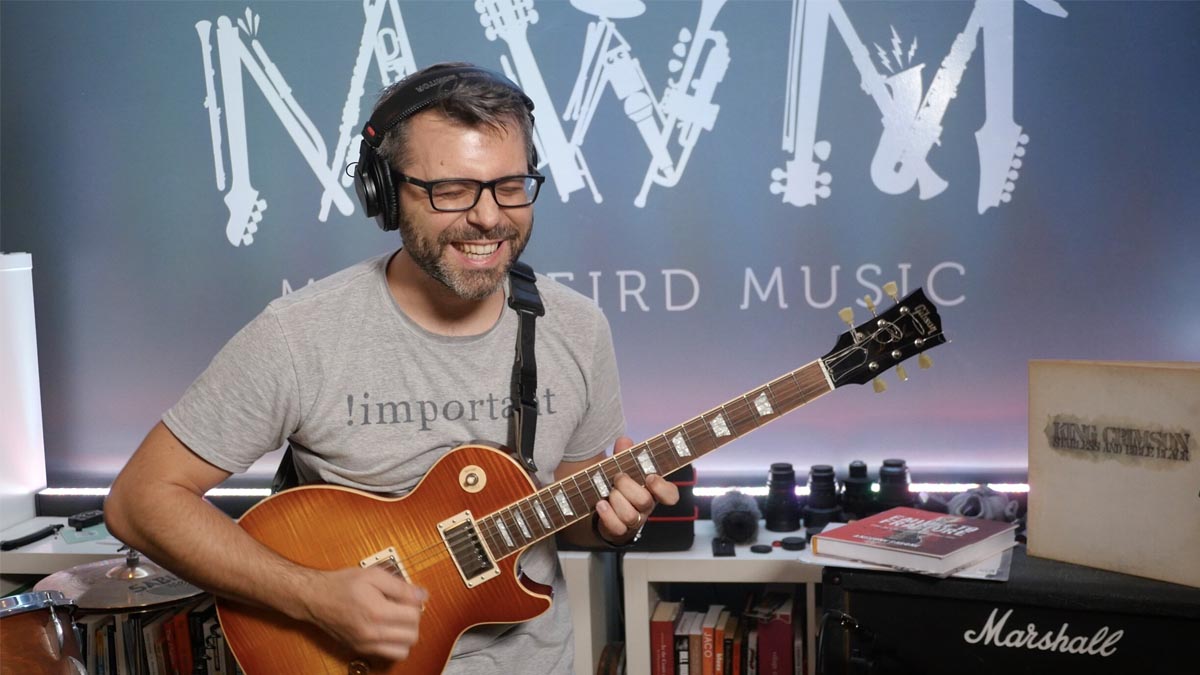Author Anthony Garone on his epic journey to master Robert Fripp's most challenging King Crimson track, Fracture

Given that Anthony Garone wrote an entire book dedicated to mastering King Crimson’s 1974 epic Fracture, one of the most notoriously difficult guitar pieces in all of prog-rock, you’d think he’d have a mind-blowing story of hearing that string-skipping behemoth for the first time.
But as a 16-year-old with an insatiable appetite for riffs, he initially considered it just another musical meal.
“I didn’t think about Fracture as a song,” he tells Guitar World. “I thought, ‘This is food for a guitarist.’ It was calories in, calories out. I remember I had a Sony Discman, and I put it on. I didn’t even listen to the song. I paused it every few seconds and played the notes that I heard. It was such an arrogant and youthful folly thing to do.
“That’s how I approached it, like puzzle pieces that were almost meaningless to me. Fracture was like anything else – it didn’t matter if it sounded cool. It was purely like, ‘Can I figure this out?’”
The simple answer: yes and no. Garone has spent 22 frustrating and eye-opening years attempting to decode the 11-minute composition (particularly the three-minute section defined by Robert Fripp’s “moto perpetuo” technique) – a challenge demonstrated on his YouTube channel Make Weird Music, and later in his densely packed memoir-meets-instructional-guide Failure to Fracture.
Within, Garone details the technical expertise he acquired in pursuit of learning Fracture – including wisdom bestowed by Fripp himself during a week-long instructional course in 2015.
One day, the guitarist told his students, “Spend eight hours a day picking one open string, and then we can have a conversation.” Garone laughs at the memory: “It’s like when you hear these nutrition experts saying, ‘All you’ve gotta do is cut sugar out of your diet!’”
Get The Pick Newsletter
All the latest guitar news, interviews, lessons, reviews, deals and more, direct to your inbox!
Of course, nothing is easy about Fracture. “What people misunderstand is you’re not playing 10 or 11 notes per second – you’re changing strings 10 or 11 notes per second,” he says. “You have to be a robot.”
And that analytical approach suits Garone, a prolific transcriber and tinkerer. “I’ve just always had that engineering mindset where it’s something to pick apart,” he says.
“But man, if you get me listening to Jupiter by Gustav Holst, I’ll still tear up after how many listens. I look at Crimson – and any other music – as half-emotional and half-architectural.”
- Failure to Fracture: Learning King Crimson's Impossible Song is out now via Stairway Press.
Ryan Reed is a Knoxville, Tennessee-based writer, editor, musician, record collector, prog junkie, and former college professor. In addition to Guitar World, he's a contributor at SPIN (current title: senior editor), Rolling Stone, TIDAL, Relix, Ultimate Classic Rock, Revolver, and many other outlets. He's also the author of 2018’s Fleetwood Mac FAQ: All That’s Left to Know About the Iconic Rock Survivors.



![[from left] George Harrison with his Gretsch Country Gentleman, Norman Harris of Norman's Rare Guitars holds a gold-top Les Paul, John Fogerty with his legendary 1969 Rickenbacker](https://cdn.mos.cms.futurecdn.net/TuH3nuhn9etqjdn5sy4ntW.jpg)







